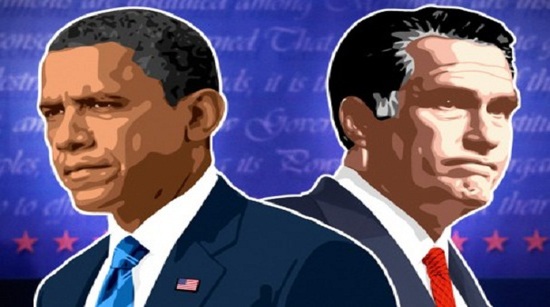The U.S. presidential election is a global event. Newspapers across the world cover both candidates’ moves and analysts debate how each candidate’s victory would affect the United States’ place in the world. This makes sense: Despite its relative decline, the United States remain the only country capable of devising and implementing a truly independent foreign policy. No country in the world can afford not to care about the United States’ global strategy.
One particularly complicated question often asked in most countries is how the election results would impact its bilateral ties with the United States, which is, for many countries in the world, the most important relationship of all. This is even true for the emerging world. For all of the BRICS countries, the bilateral relationship with the United States is, in overall terms, more important than with any other fellow BRICS member.
During recent years, Bill Clinton’s and Barack Obama’s popularity contrasted George Bush’s unpopularity. In 2008, the world seemed to be so tired of a Republican White House that young foreigners from Europe, Asia and Latin America flocked to Florida, Ohio and Pennsylvania to knock on doors for the Obama campaign. While the 2012 Obama campaign is unable to generate the global excitement about its candidate, Obama is overwhelmingly preferred to Romney on a global scale. The same is true for Latin America. A CNN poll showed large majorities favoring Obama in Panama, Mexico, Peru and Brazil. In South America’s most populous nation, 65% favor Obama, against only 6% who hope for a Romney victory.
This is striking because there are few substantial differences between the two candidates’ Brazil policies. Foreign policy issues are not the decisive factor of the election, and if global issues are debated, the focus lies on China, Iran, Israel-Palestine and Afghanistan-Pakistan. Most agree that US-Brazil relations are unlikely to change much if Mitt Romney won the election on November 6.
Support for Barack Obama is overwhelming in Brazil despite the fact that US-Brazil relations have been complicated over the past four years due to several thorny issues, ranging from Brazil’s break with the Inter-American Commission on Human Rights (IACHR), its stance on Libya, Syria, differing positions on climate change, the question of how to deal with Iran, Cuba, Paraguay and Venezuela, as well as U.S. quantitative easing – a strategy that has led, in Brazil’s eyes, to a ‘monetary tsunami’.
Yet ties have improved after hitting a low point at the end of the Lula administration. Brazil is increasingly assuming regional responsibility, thus elevating U.S.-Brazil ties to a new level, essentially making them a conversation between the Hemisphere’s Northern and Southern leader. While Barack Obama has not yet expressed his support for Brazil’s ambition to become a permanent member of the U.N. Security Council, the quality of the relationship today, under Antonio Patriota’s stewardship, is far more constructive and cordial than it was under his predecessor Celso Amorim.
Anti-American protests (such as the one pictured above in Rio de Janeiro during Obama’s 2011 visit) are rare, partly because Brazil itself is now increasingly criticized in its neighorhood as a bully. Furthermore, Brazil possesses the rare capacity to engage other emerging powers, as Sweig and my colleague Matias Spektor point out in an op-ed published in the New York Times last year prior to Obama’s Brazil visit.
Barack Obama may be more aware than his opponent that emerging powers must be included into global governance structures. He is personally said to be in favor of implementing IMF quota reform as soon as possible. Yet in the end the extreme and unprecedented political polarization in Washington D.C. will make it very difficult for any US President to propose and implement courageous foreign policy initiatives. Irrespective of who will win the election, policy makers in Brasília will work towards strengthening ties. At the same time, they know that Brazil’s determination to engage in issues hitherto reserved for established powers, such as the conflict in the Middle East, will periodically put a strain on the relationship.
On November 5 at 3pm, the Center for International Relations at Fundação Getulio Vargas (FGV) in São Paulo will organize an open debate with journalists, political scientists and economists about the US presidential election. To particapte, please sign up here.
Read also:
Can Dilma Rousseff fix U.S.-Brazil relations?
Brazil and the dilemma of regional leadership
Debate: Panorama e Perspectivas das Eleições Presidenciais nos EUA
Image Credit: AP/Carolyn Kaster/James Glover/Salon/Benjamin Wheelock









